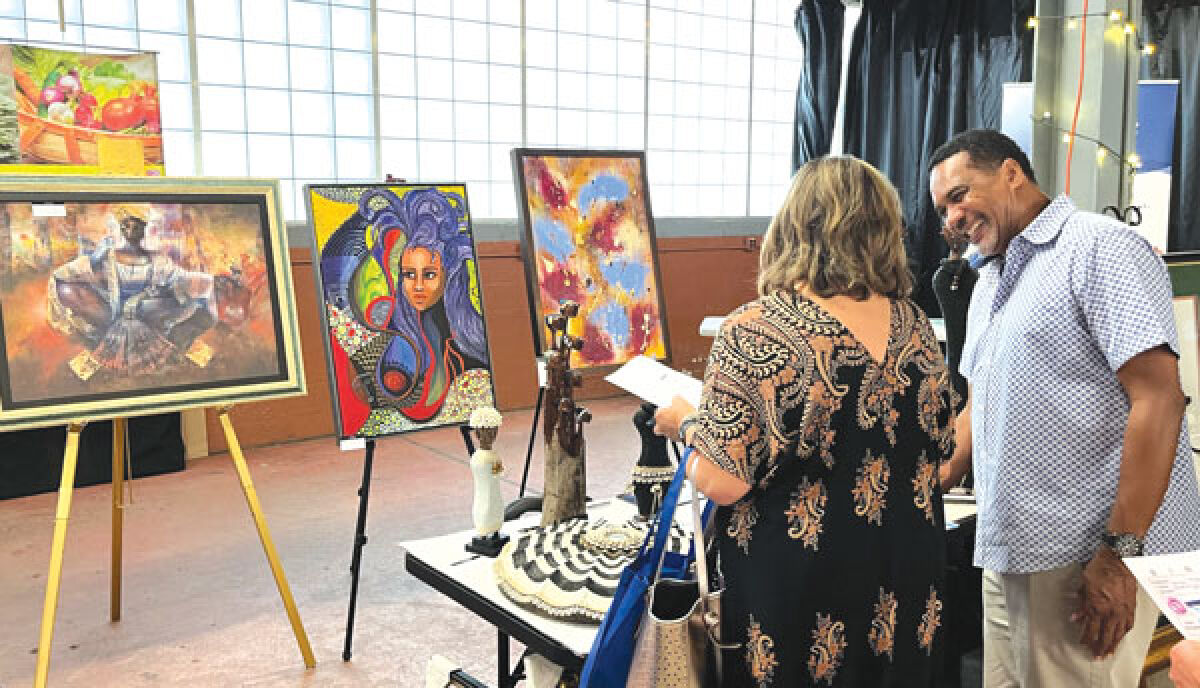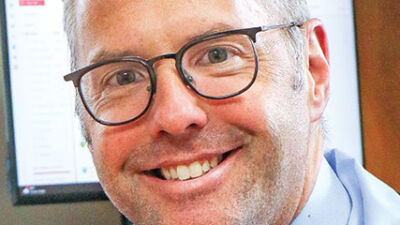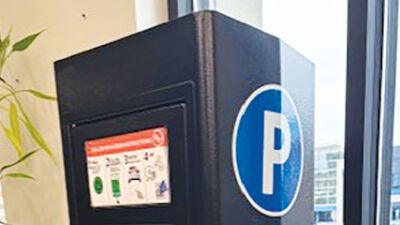ROYAL OAK — Several Detroit-area chambers of commerce and business organizations came together July 25 to highlight small businesses led by minorities, women and veterans.
The Diversity Expo took place at the Royal Oak Farmers Market, featuring more than 50 local businesses. The Royal Oak Chamber of Commerce, the Troy Chamber of Commerce, the Birmingham Bloomfield Chamber of Commerce, the Southfield Chamber of Commerce, the Hispanic Chamber of Commerce, the Chaldean American Chamber of Commerce and Miindia came together to host the event.
“This is a partnership between all of these chambers to support minority-owned businesses, woman-owned businesses and veteran-owned businesses to get them exposure to the public and promote them,” explained Sydney Dych, the director of marketing and events for the Troy Chamber. “This was the second year we’ve done this program. We did one last year in July here at the farmers market. We had only four or five chambers involved. We do plan to do it again next year, hopefully, in the same location.”
Colleen Buddy is the owner of Office Evolution in Troy. She was among the businesses featured at the Diversity Expo and said that she has seen firsthand how necessary events like this are, since her business is based around providing office space for small or remote-functioning businesses.
“I think it’s great to see this focus (on minority-, women- and veteran-owned businesses),” said Buddy. “One of the things that stood out to me is how many minority businesses or groups are using our spaces. We have 25 of our 58 offices filled right now, and maybe one of them is a white man.”
Ian Grant, the owner of the Umoja Fine Arts Gallery in Southfield, said that he jumped at the chance to participate when he heard about the expo.
“I’m a member of the Southfield Chamber of Commerce, so when they call me I always try to be on the A-team and support the chamber. When they said this was a diversity conference, I thought it was great. We represent mostly African American art, so getting into a diverse space would be a good opportunity for us.”
Matt Holtyn, the owner of JDog Junk Removal and Hauling of Warren, and Max Johnson, the owner of JDog Junk Removal and Hauling of Clarkston, also took part. Both veterans, they were pleased with the turnout of the event and the opportunities they were giving businesses that may have a rougher time starting out.
“I’m a Birmingham Bloomfield Chamber member and heard about the event,” said Johnson. “I contacted Matt, since we’re both veterans.”
“This is our first time taking part. It looks nice,” added Holtyn. “You have a wide range of businesses represented here.”
The organizers said they wanted to highlight businesses owned by minorities, women and veterans because these groups can face extra challenges, particularly in their first year.
“These businesses might not always have the reach that larger, more corporate businesses have,” said Dych. “A lot of the time, we noticed that a lot of our smaller businesses owned by minorities, women or veterans didn’t have the same exposure opportunities. We wanted to give them chances to get more exposure and network and make connections.”
“I think the barriers are a difference in perception and the lack of confidence or connections among these groups,” added Buddy. “They don’t have the cousin, the uncle, or the friend that is already a successful business owner and willing to take them under their wing.”
Grant said that while resources like the expo are becoming more common, they are still not regularly offered in a lot of areas.
“I still think resources like this are still a rarity,” he remarked. “I think they are kind of building and becoming more common. I think it represents some changes going on. Like at our business, African American art is the fastest growing segment in the art world right now. It’s sort of like, at museums, you only see African American art taking up about 1% or 2% of their collections, but that percentage is increasing just about everywhere.”
Johnson said he was happy to see veteran-owned businesses included, since veterans can face setbacks after leaving the service.
“I wouldn’t say there are extra hurdles that veterans have to face, but many are starting their businesses later in life, since they are only doing that after they leave the service,” he said. “They might be starting with less capital.”
Buddy stressed the importance of networking and connecting with other businesses when starting a new enterprise.
“We do anywhere between three and 10 networking events a week,” she said. “We just opened in November. That means that the name of the game for us right now is shouting from the rooftops about who we are and what we do. We even host some networking events.”
Holtyn added that supporting local businesses is a crucial priority for communities, since it helps local people in a variety of ways.
“Supporting local and small businesses not only helps the local community by putting money back into the community and employing local people, but it also helps us help the local community. Our mission is to remove junk and help communities, for instance. We contribute to programs that help veterans get on their feet and hire veterans, so it’s all connected.”
 Publication select ▼
Publication select ▼






















